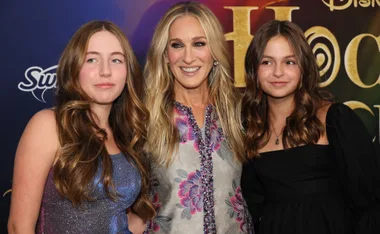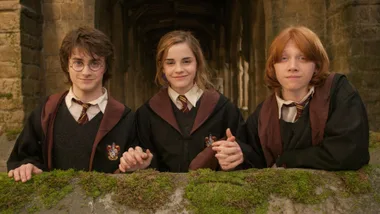There is no issue that inhibits and endangers women more than domestic violence, which currently claims the life of an Australian woman every week.
In the February issue of marie claire, we campaign to criminalise coercive control – the hidden, sinister form of domestic violence that is happening behind closed doors all over the country.
Coercive control does not discriminate – all women from all walks of life can be impacted, with tragic outcomes.
Here, nine brave women share their insights into this insidious behaviour – which can include emotional and financial abuse, isolation, sexual coercion and cyber-stalking – as they join marie claire and ARE Media’s initiative to make coercive control a crime.
Join the fight to criminalise coercive control by signing the petition here.
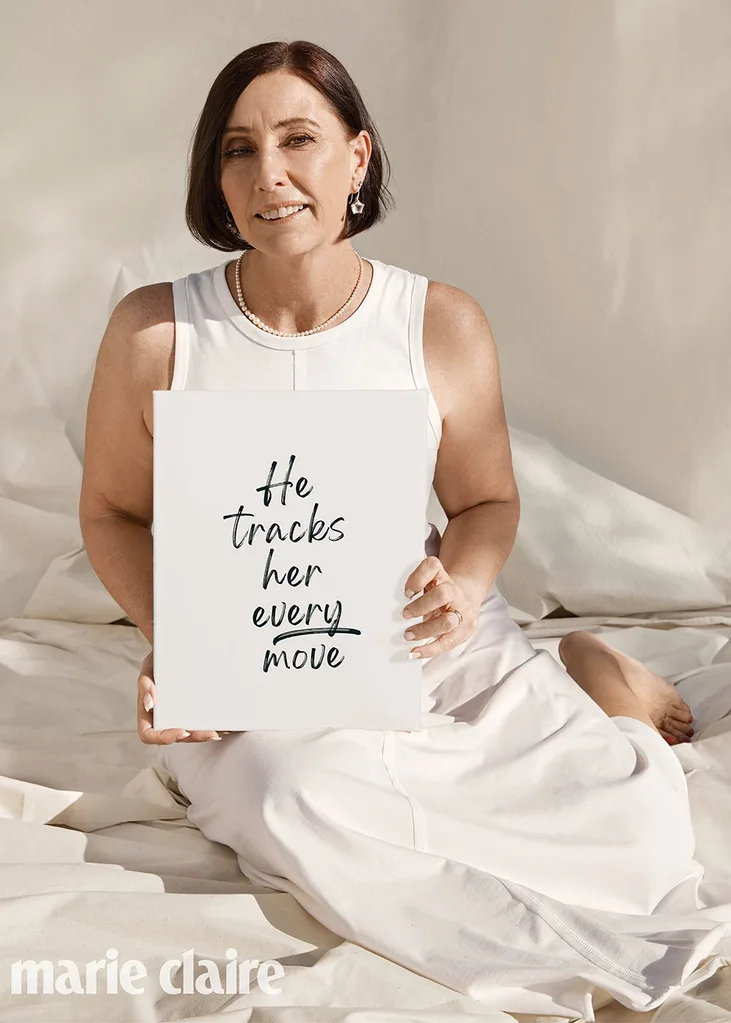
SUE CLARKE: MOTHER OF HANNAH CLARKE
“My daughter, Hannah, was a beautiful girl, and her three kids, Aaliyah (six), Laianah (four) and Trey (three), were the loves of her life. She tried to put on a positive front for them, but she was dealing with a hidden darkness. In the beginning, it was only little things, but then gradually [her husband] Rowan’s controlling behaviour really started to escalate. Hannah was ready to leave him after Laianah was born, but then she fell pregnant with Trey, and Rowan convinced her she would be a bad mother if she left. He would constantly go through her phone, tracking where she was going, controlling everything. She wasn’t allowed to have a Facebook page or wear shorts to the gym. He would threaten to kill himself, not speak to her for days, and then twist it around and try to make her feel guilty.
But for a long time Hannah didn’t realise she was in an abusive relationship. She would say, “But he’s never hit me.” He would say the same thing to us: “I’ve never hit her.” In both their heads, that was the definition of domestic abuse. That’s one of the most important things we want people to understand. We want to educate people on what coercive control looks like so they can identify if it is happening to them. We didn’t know. If we did, maybe we could have saved her and the children. That’s why we set up Small Steps 4 Hannah. We want to do anything we can to prevent other people going through the same pain.”
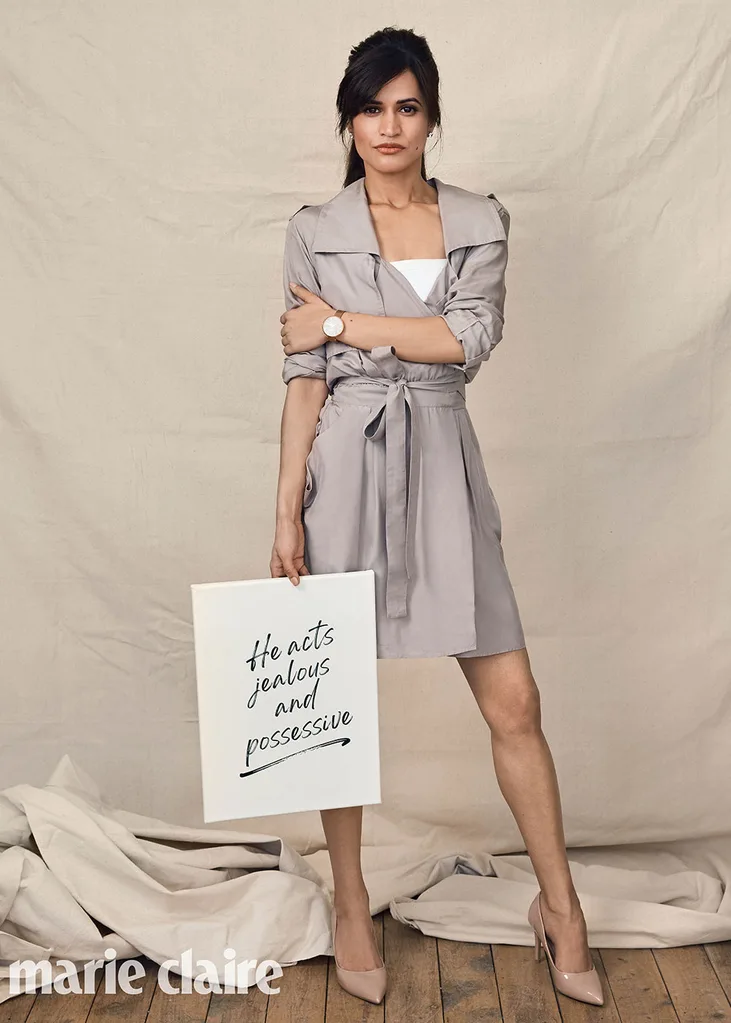
NITHYA REDDY: SISTER OF PREETHI REDDY
“My big sister, Preethi, was kind, considerate and so smart. She always wanted to take care of people, especially those she loved. The first time I met her murderer, we were at a party. They had met while studying dentistry at university and she’d been dating him for a few months. I remember thinking straight away that he wasn’t for her. My sister was being her social self, mixing with everybody, and he was constantly pulling her back to his side, as though she had this responsibility to be near him. When she went missing, I realised the truth sooner than those around me, and it was because I had spoken to him. He was very calm. There wasn’t the level of surprise you’d expect when you tell someone that somebody’s missing.
My sister didn’t think she was in danger. A week before she was killed, she told me he was controlling and I knew he exploited her kindness and empathy by threatening to kill himself. But she didn’t – and I didn’t – realise that those non-physical control dynamics are so dangerous. What I want women to understand is that coercive control is at the core of domestic abuse. Intentional or not, they’re often the same tactics. For some women, like my sister, it escalates to [the point] where homicide is the first act of physical violence. If we had a coercive control law five years ago, I think Preethi would still be alive.”
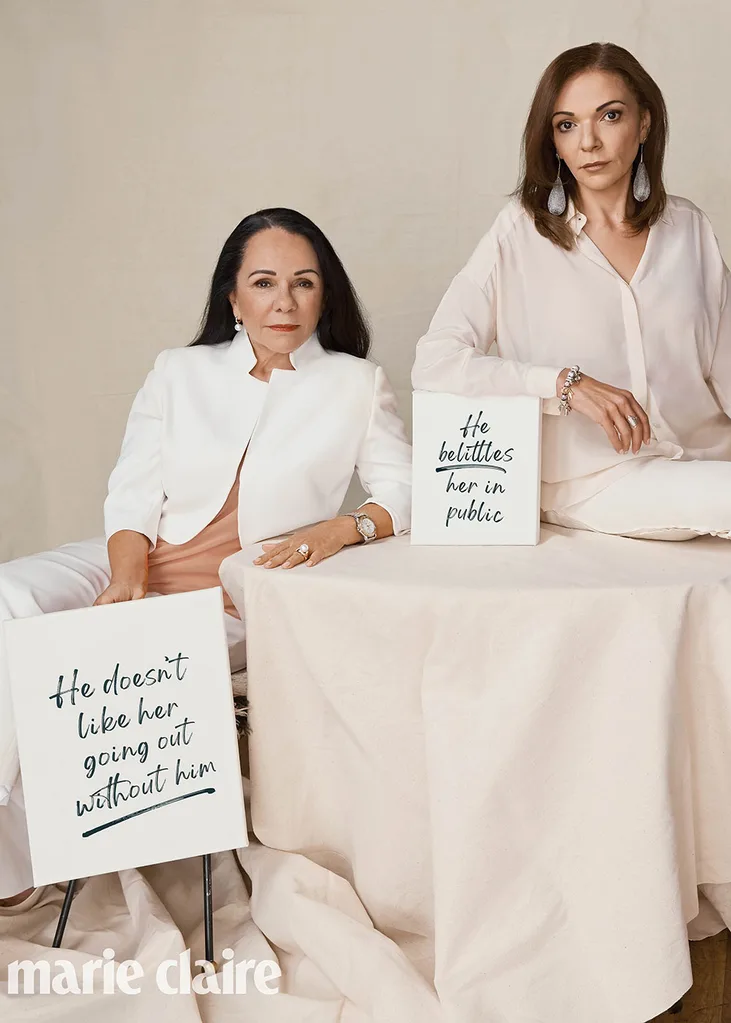
LINDA BURNEY: MP, SHADOW MINISTER FOR INDIGENOUS AUSTRALIANS
“I’ve spoken previously about the domestic violence issues I’ve witnessed in Indigenous communities, and I know from personal experience that there are places in Australia where coercive control has become almost normalised in relationships. Young Indigenous kids need to understand what a healthy relationship is. And control is not healthy. A lot of women find themselves in relationships where their partner dictates what they wear, who they hang out with and how much money they spend. I want these women to understand that this is not normal – it’s a form of violence, and can be a precursor to physical violence. Criminalising coercive control would be another step towards addressing a national crisis. There were four women killed [by men in their lives] in Australia last week, and it received very little media coverage. If it were four shark attacks, it would be on the front page of every newspaper!”
DR ANNE ALY: MP, PARLIAMENTARY LAW ENFORCEMENT COMMITTEE
“I was 21 when I got married. I thought I knew it all. The warning signs were there, but I ignored them. He would go out and I’d ask him where he’d been. He would say, “You can bang your head against the wall til you bleed to death, bitch, you’ll never find out anything.” It started with verbal abuse and belittling before it progressed to physical violence. At that point in my life, I thought I was the kind of woman who men like to hit; that was the price you paid for being someone who would speak her mind or have her own views. I attempted to leave several times before I finally got away. I speak to many successful women in similar situations, and they almost feel like, “Well, this is part of my normality.” That’s why I shared my story. I realised how important it is to speak out because there are women out there who need to hear it, who need to be encouraged to leave and to share their stories. Otherwise, it will always remain hidden.”
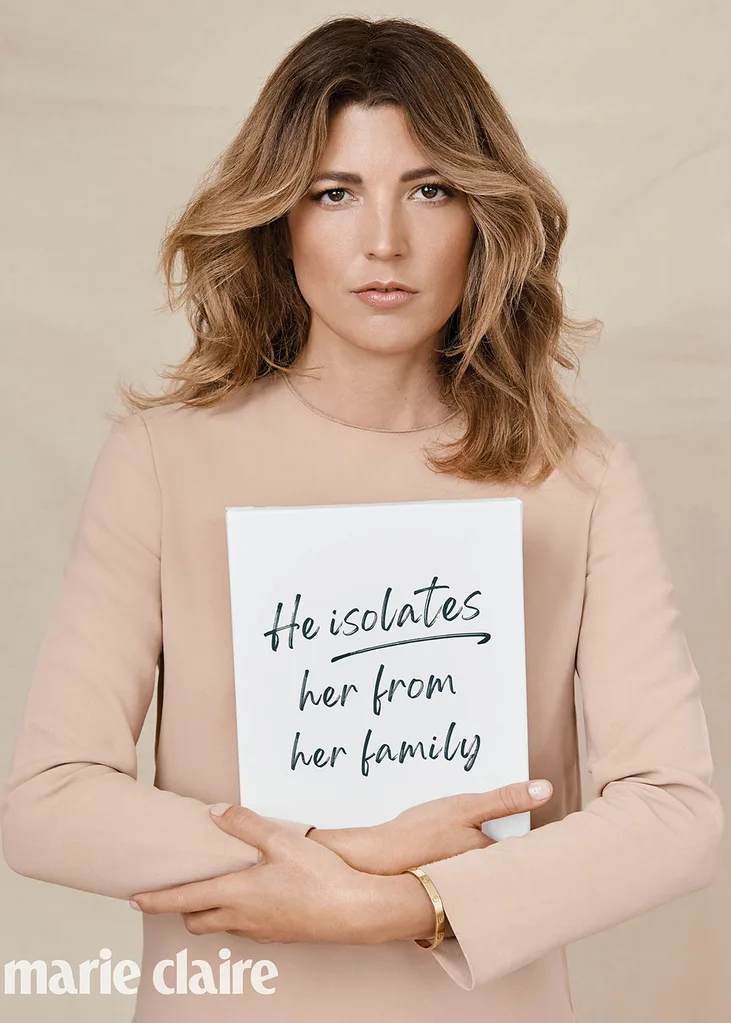
TANJA GACIC: MODEL AND INFLUENCER
“After I broke up with the father of my child, I met a man who was gentle and kind. In the beginning, it was wonderful, and then gradually things started to change. He asked me to support him financially, used shame and guilt against me if I questioned it and he’d put me down. I started getting therapy because I thought it was my fault, and I became aware of what was going on. So I started setting boundaries, and that’s when the physical violence started. I was pregnant at the time and ended up having a miscarriage. That’s when I left him – I realised how much danger I was in. In retrospect I realised there was nothing I could have done better, except leave sooner. Women need to understand, if things are not getting better, the only thing you can do is leave. Also, understand what abuse is, and the myriad ways abuse can manifest, because there isn’t just one form. Everyone always waits for physical abuse, but that comes later. Don’t think things will get better, because they always get worse. This sort of abuse does not discriminate, it doesn’t just affect women in lower socio-economic areas – it’s women everywhere. But it’s not talked about. I wanted to talk about my experience because I don’t want to be another person who allows this cycle to continue. We can stop this, but we need to stand up against it as a society.”
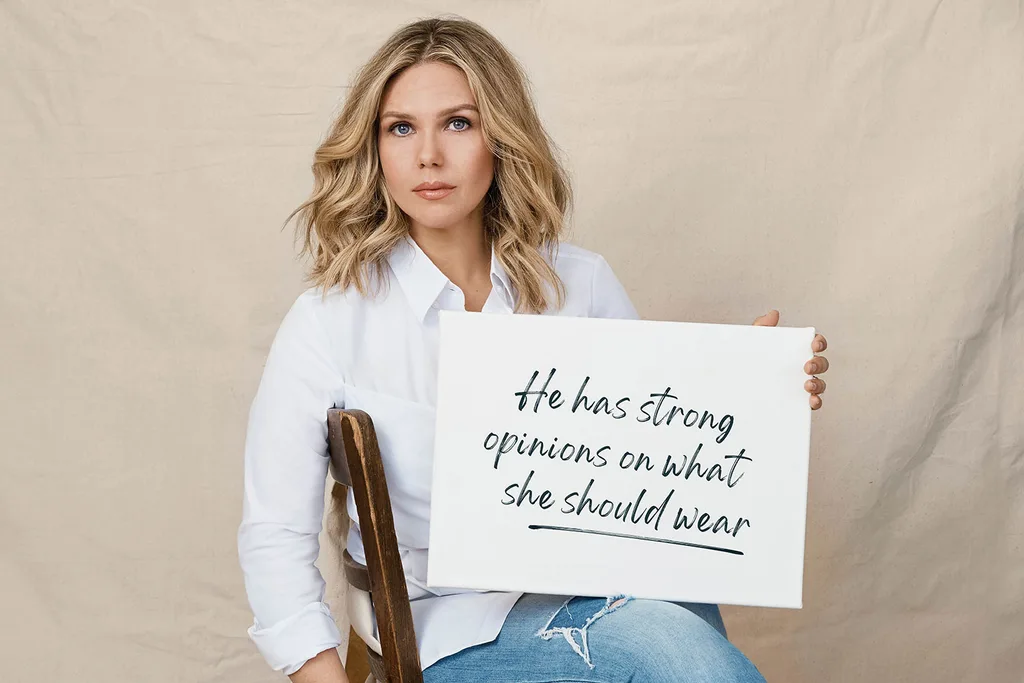
EDWINA BARTHOLOMEW: JOURNALIST AND TV PRESENTER
“When I first started working in news journalism, domestic violence was never in the headlines. I remember when I worked in radio, you’d hear a domestic violence situation come in and you just wouldn’t report it. It was like suicide; you never reported it because it wasn’t seen as a crime. Now, when they do make the news, it’s always the cases where there’s something very shocking. You maybe hear about them for a week or two, but more often than not you just never hear these women’s names again, and that’s heartbreaking. And those are the ones we do hear about. Every week, there are so many more that never even make the headlines. And that’s the most concerning thing. Criminalising coercive control will create a clear definition. There are so many women out there right now within these situations. They feel trapped. They can’t get out of it. Maybe, by doing campaigns like this, they see people speaking up and they think, “Well, maybe I can seek a lifeline or find another way.”
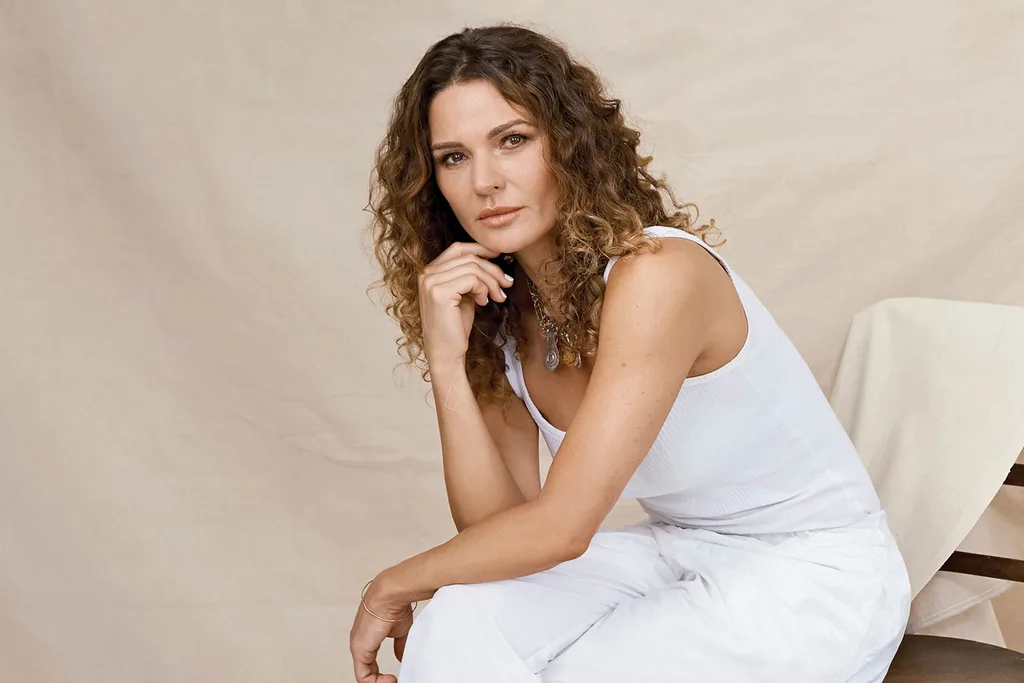
DANIELLE CORMACK: ACTOR AND PRODUCER
“No human being should ever be placed in a state of entrapment and have their lives controlled by someone else. A close friend of mine was in a controlling, abusive relationship for years. He separated her from her family and friends and I witnessed the slow erosion of her self-worth. She started to feel so much shame around the choice of the person she was with, and as a result she felt like she couldn’t reach out to anyone. I also do a lot of work with at-risk youth, especially young girls who are very vulnerable, who have left unstable family environments and end up in bad patterns of relationship abuse. By criminalising coercive control, by putting it out in the public forum, it will educate people as to what is right and what isn’t. It will make it a part of the general conversation, so that people can ask themselves, “Am I being controlled?” or even, “Am I being coercive?” And most importantly, it will facilitate a way for victims to get out.”
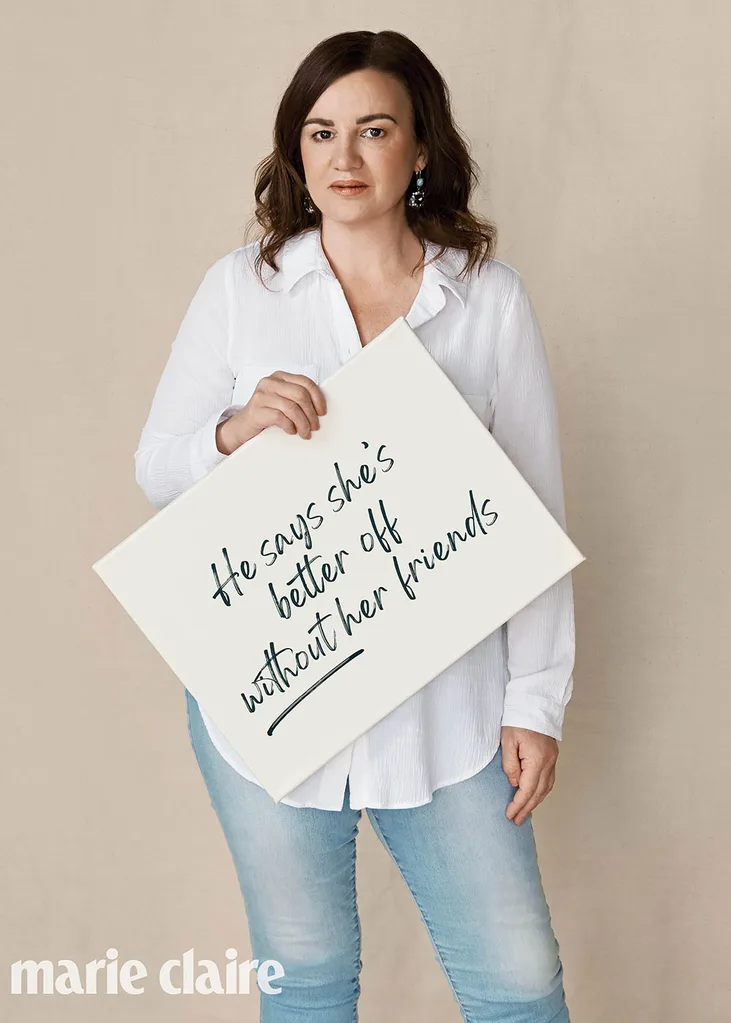
JACQUI LAMBIE: SENATOR FOR TASMANIA
“I watched a girlfriend of mine endure coercive control. She was a single mum and had really low self-esteem. We watched this man come into her life – he was all nice and smiles to start with, but as her friends we could see little ways he’d control her. He was a farmer, and sometimes he’d bring her vegetables and other times he wouldn’t. Then he took the battery out of her car so she couldn’t go anywhere. And then the violence started. He tried to push us away so we’d see less of her. It was after two years of this that he kicked her in the head, and we helped her leave him. But she still carries the scars, both physically and psychologically. To me this issue is all about power, control and narcissism. And so often women brush things off and say, “Everything’s fine” – it’s part of our behaviour. We need to keep talking about coercive control – to the point where everyone’s getting so sick of seeing it that they’re throwing up in a bucket. Until we get there, we’re not getting the point across.”
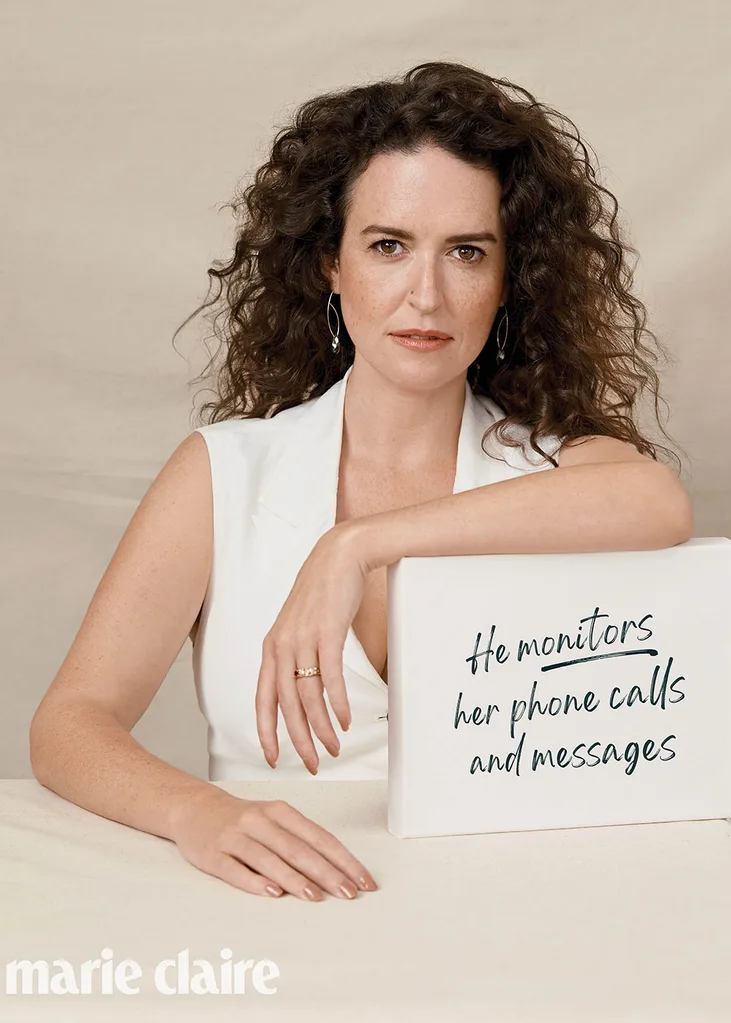
JESS HILL: JOURNALIST AND AUTHOR
“When I found out how many people are affected by domestic abuse, I realised there was no other issue that that impacts so many people from all walks of life. It’s why I wrote my book, See What You Made Me Do. We try to create a cohesive society, but at the core this is the one thing corroding it all. You’ve got one in four women experiencing physical or sexual violence from an intimate partner from the age of 15. You think about all the opportunities lost to those women, their inability to reach their potential. This is a state security issue: you have violence occurring in hundreds of thousands of homes, you have court systems that are fundamentally unable to protect children. If the death and abuse of women and kids is not enough to get you to move on this, then think about what it does to our society and how it hinders so many things that we want to progress.
If coercive control becomes a crime, it will become culturally understood that entrapping women and children, and holding them in an almost hostage-like situation, is not acceptable. You’d think that would already be clear, but it’s not. And that’s what the law does, it prosecutes socially unacceptable behaviour. The changes would be seismic over time – and the situation would inevitably improve. It would save so many lives.”
The February issue of marie claire is on stands now.

